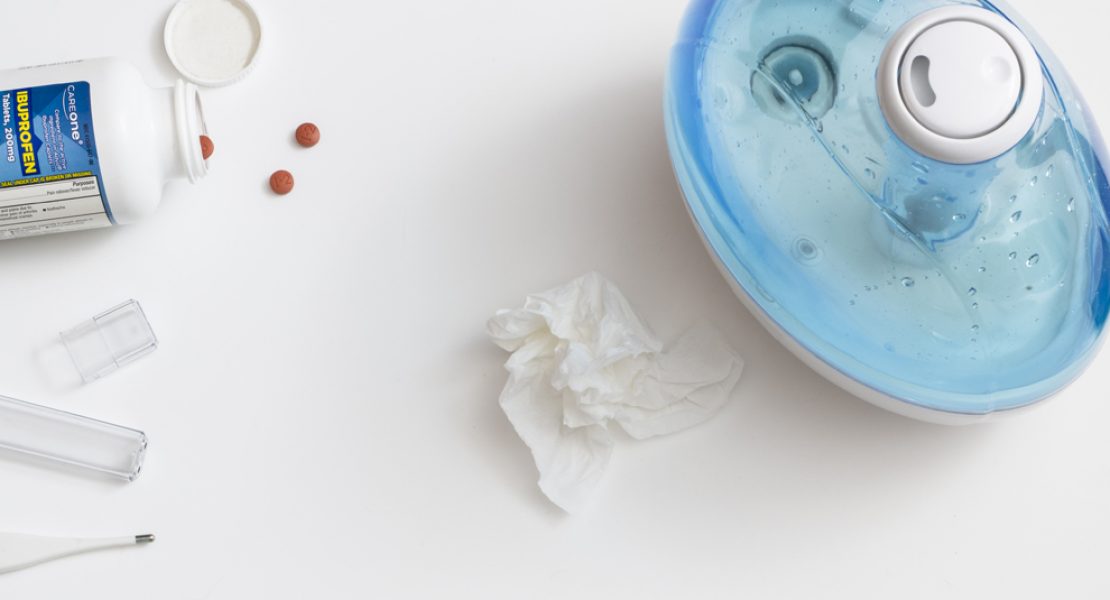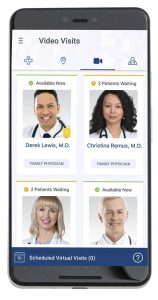Speed Up Your Flu Recovery

Getting slammed by the flu is no fun. The fever, the aches, the hacking cough, the runny nose…you just can’t wait for it to be over.
Unfortunately, there’s no “silver bullet” cure for influenza; the viral infection needs to run its course. (And, because it’s viral, antibiotics don’t help.)
However, the prescription drug oseltamivir (branded as Tamiflu) can help shorten the flu’s duration by a couple of days, but it has a fairly narrow window of efficacy. “Ideally, you should start taking it within 48 hours of showing symptoms. If you wait longer, its effects will be minimized,” says Dennis M. McGorry, Jr., MD, at St. Luke’s McGorry-Matta Family Practice. “Typically, Tamiflu helps you recover in five or six days, instead of seven or eight,” he adds.
He explains that the drug doesn’t kill the virus; it just keeps it from replicating. Thus, it’s easier for your immune system to battle.
Dr. McGorry suggests many other proactive steps to limit your suffering and avoid complications.
REST
Staying quiet lets your body direct its energy toward fighting the illness. And remember that it takes about a week for all symptoms to pass. “Many flu sufferers start feeling better and think it’s okay to return to work or school. You should refrain from those activities for the full seven days,” Dr. McGorry says.
STAY HYDRATED
When you’re feverish, your body needs more fluid for its normal processes. The act of coughing is dehydrating as well. Your ‘thirst’ mechanism can be depressed, which leads to not drinking enough. Plain water is just fine, McGorry adds.
CONTROL THE FEVER
Acetaminophen, ibuprofen, and naproxen (commonly known as Tylenol, Advil, and Aleve) can help put a lid on your fever. But first, ask your doctor which medication would be best for you. Patients with impaired kidney function, for example, are usually limited to acetaminophen.
A HACK FOR YOUR HACKING
Depending upon the severity of your cough, over-the-counter suppressants or a prescribed medication can help. At the same time, taking an expectorant (such as guaifenesin, the active ingredient in Mucinex) helps to break up thick, sticky mucus, making it easier for you to expel it.
MOISTEN THE AIR
If your home’s air is dry, consider running a mist humidifier or a vaporizer. The extra humidity helps ease congestion and calm your cough. But, don’t use warm mist. It encourages the growth of bacteria and molds.
KEEP IT TO YOURSELF
Influenza is highly contagious, and you can spread it to other people for as long as eight days. Avoid contact with other people as much as possible.
BE ALERT TO OTHER SYMPTOMS.
A sudden spike in temperature (103° or 104° in adults), muscular pain or the onset of shortness of breath are signals that something else—such as pneumonia, sinus infection or ear infection—might be developing. Those symptoms can warrant another doctor visit, or even a trip to the ER. That’s particularly important if the patient has other medical conditions such as COPD, asthma, or diabetes. Even pregnancy and extreme youth/age can be additional risk factors.
“Nationally, 88,000 people have been hospitalized because of the flu virus, during this season alone,” Dr. McGorry says. (For perspective, that’s the equivalent of the population of Bethlehem—plus another 13,000 people!) In compromised individuals, the situation can deteriorate quickly, sometimes in a matter of just days.
WHEN YOU NEED MORE ATTENTION
You say you’re miserable, but your doctor is already double-booked for most of the next week? St. Luke’s offers a pair of great alternatives.
St. Luke’s CareNow walk-in care facilities enable patients to receive urgent care without a previous appointment. They offer extended hours (Allentown and Bethlehem locations, for example, are open from 7:30 a.m. to 10:30 p.m. on weekdays, 8:00 a.m. to 8:00 p.m. on weekends), and offer lab/x-ray services. Find your nearest one here: slhn.org/care-now/locations.
For even greater convenience, schedule a video visit with a St. Luke’s physician via your smartphone or other device. You can discuss your symptoms virtually face-to-face, receive a diagnosis, even get a prescription issued, all without leaving your home! (See sidebar for details.)
Ultimately, though, the best approach is not to get the flu in the first place. “This year, the vaccine covers four different strains of the flu virus,” Dr. McGorry says. “But even if you acquire a different variety of the bug, that vaccine can still be of some benefit to you by reducing the virus’s impact.”
 VIDEO VISITS
VIDEO VISITS
It’s easier than ever to connect with a doctor in minutes for a live, on-demand, 24/7 video vist from your phone or tablet. Get a real time diagnosis or treatment—all in one quick, convenient session. No waiting, no appointment needed, available from the comfort of your home.
Just download/install the St. Luke’s mobile app from the Apple iTunes or Google Play stores and you’ll be ready to set up your account.
Log in, select a doctor, and your secure online visit will begin in a matter of minutes.
“It’s much like a Skype call,” Dr. McGorry says, “and the doctor can do practically everything except listen to your heart and lungs.” You and your doctor will see and hear each other and when appropriate, a prescription will be sent to a pharmacy of your choice.
Video visits are a great option when your doctor’s office is closed. Common urgent care conditions treated include: allergies, bronchitis, flu, coughs and colds, rashes, urinary tract infections, and more.
Why not download the app today? It’s easy! Learn more at ConnectWithaDoctorNow.org.

















